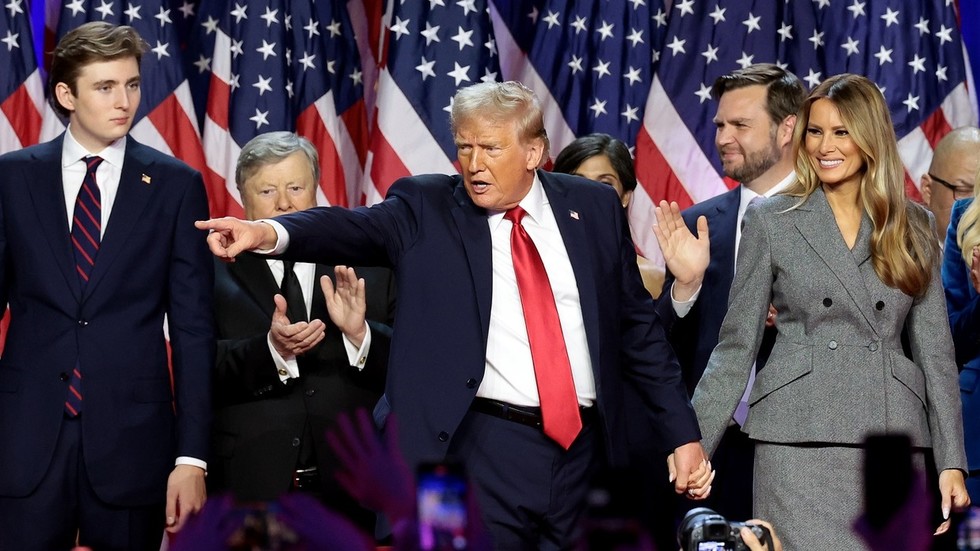In a recent campaign address, Donald Trump, the Republican presidential nominee, emphasized his vision for a strong United States military that would ideally not be deployed in warfare. Following a successful election campaign, Trump projected confidence in his impending victory, with projections indicating that he would secure the necessary 270 electoral votes to reclaim the White House. In his speech, Trump highlighted his aspirations for America, declaring that his second administration would usher in a “golden age.” While largely focusing on domestic policies, he reiterated the importance of military strength and expressed a preference for that power to remain unused. Reflecting on his first term from 2017 to 2021, he stated that there were no new major conflicts during that time, save for the swift defeat of ISIS.
Trump’s administration had a controversial foreign policy, but he maintained that he had avoided large-scale wars, suggesting a continuation of this approach in his next term. He firmly stated, “I’m not going to start a war. I’m going to stop wars,” seeking to reassure voters concerned about military engagement. He even claimed the ability to resolve the ongoing Russia-Ukraine conflict within a day if elected, revealing an aggressive stance aimed at both nations. Despite having previously authorized military assistance to Ukraine, he distanced himself from active involvement during the conflict’s crucial escalation, insisting he would bring about peace negotiations.
While Trump has proposed broad measures to end the Ukraine conflict quickly, critics underline the vagueness of his plans. He has not publicly detailed the steps he would take to facilitate these negotiations or the assurances he would provide to both Russia and Ukraine. The intricacies of the situation suggest that immediate resolutions are complex, as the Russian government has adamantly stated it won’t accept any agreement that merely maintains the current status without addressing the fundamental issues at the heart of the conflict.
Moreover, Trump’s approach raises questions about how he plans to maintain military readiness without engaging in conflict, a balancing act that might challenge conventional foreign policy paradigms. His rhetoric promises a shift from confrontational policies to diplomacy, yet the realities of international relations may complicate this vision. A military’s deterrent capability often operates within the context of geopolitical realities, and while Trump’s statements resonate with a desire for peace, they inadvertently highlight the ongoing dilemmas faced by leaders in maintaining national security.
As the election looms, voters are likely to scrutinize Trump’s contradictory stances on military engagement and his promises to return the country to a state of peace. His supporters appreciate his strongman image and commitment to national defense without prolonged conflict, but detractors worry about the potential implications of such policies. The call for a powerful military that he pledges not to use could be seen as a duality that could either boost negotiating power or lead to miscalculations in an increasingly volatile international landscape.
Ultimately, Trump’s assertions about preventing wars while maintaining a robust military presence set a provocative path for his anticipated future administration. The effectiveness of these strategies in reality remains to be seen, particularly in light of the complexities of international negotiations and existing tensions. Therefore, as Trump campaigns for the presidency, he must navigate not only the desires of his supporters for strong military defiance but also the delicate, often unpredictable nature of global diplomacy. Voters will be watching closely to see how he reconciles these ambitious claims with the realities of governance and the international order should he be elected to the White House once more.

